"Say It Properly"
As an immigrant, I was taught how you say something matters. That's why I know how important it is to call Tuesday's Atlanta shooting what it was: a hate crime.
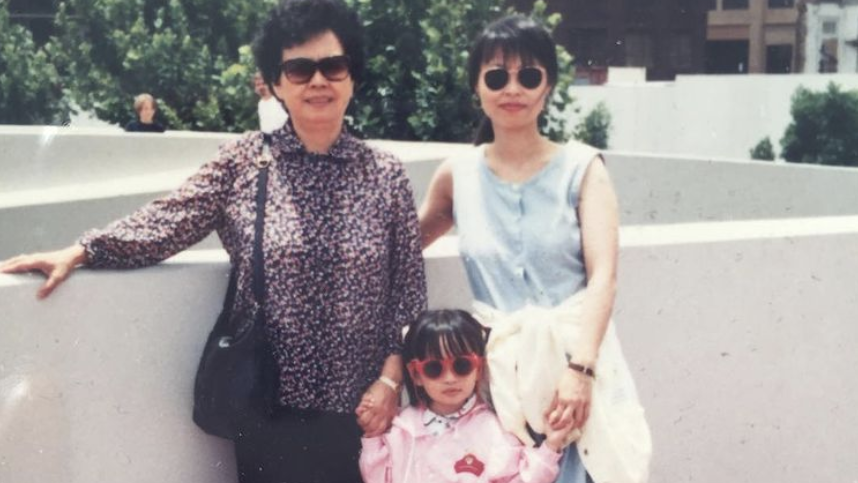
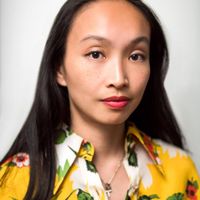
I remember my first day at school in Sydney vividly. I was seven and had just moved from Hong Kong, barely speaking English. I was the only Asian kid in my class; everybody else was white, apart from a Black boy named Femi. Standing alone in the shadow under a set of stairs at recess, a girl bounded up to me and asked for my name.
Out of sheer panic that this was the first time someone had decided to start a conversation with me in English, I blanked and stuttered, "I don’t know…"
My heart sank. I failed my first test.
The girl shrugged and ran off.
I didn’t know my name.
I knew, but I had forgotten.
I must have repressed this shameful memory over the years, as the rest of my first year assimilating into an Australian school was a blur. I was teased because everyone called me a baby kangaroo (my name was Joey, which in Cantonese meant Joe-兒/child of Joe, my dad) and changed my name to Jodie shortly thereafter, along with changing schools. The only other thing I remember was the distinct smell of my ESL teacher’s strawberry bubblegum, and the way she held her nubby pencils between her thumb and forefinger.
Stay In The Know
Get exclusive access to fashion and beauty trends, hot-off-the-press celebrity news, and more.
“Say it properly. When you say the, or there, don’t start with a D. That is not proper. Put your tongue between your teeth. Thhh thhh thhh.”
Say it properly, she taught me. Because how you say something matters, she would say.
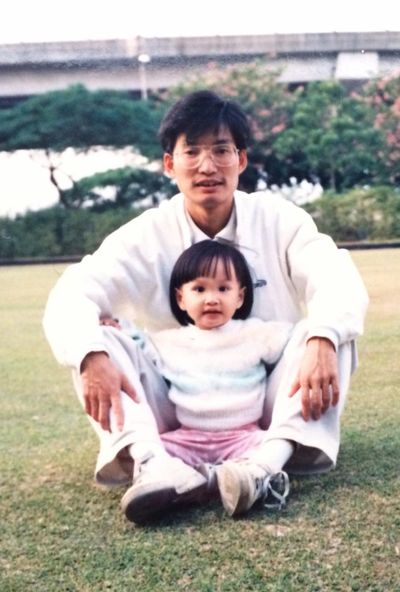
The author with her father.
I took her advice to heart. I became mindful of what I said, and how I said it. I absorbed everything like a sponge — the way she talked, the way the other girls in class held their conversation and were completely effortless in their command of language. I saw how easily and confidently they could state their point of view, and get what they asked for. Later I was jealous of how the debate team — all white — were so convincing and assured of their power. They didn’t even need to try. Yet here I was, second guessing every word I said or wrote, forgetting my own name. Throwing away the original name my dad had bequeathed me over a marsupial joke.
Perhaps this is why, years later, I ended up in communications. Because how you say something matters. Perhaps this is why this memory on the playground that hot February day came back so clearly in my mind recently, in light of the hate, vitriol, and violence that has been leveled against the Asian community and spreading like wildfire through America. Living in New York, I am now fearful of riding the subway alone. I have a hard time identifying whether my feelings are of crazy paranoia or logical fear, which seem to have blurred into a dark mass hanging in my mind every time I am out by myself. I have to make sure I have my pepper spray with me ready and accessible always. I find myself rehearsing in my mind what I would say if someone said Fucking Asian Bitch! to me again — the last time being in broad daylight on Russell Square in London, not too long ago. What if I saw an elderly paw paw or gong gong being harassed on the street? Would I have the guts to intervene and stand up for them? What would my retort be if someone told me to go back to where you came from? What would I say? How would I say it?
Because how you say something matters.
For all the times I have been corrected to say something properly, or had me no speak engrish spewed in my face, I am stunned at the collective, willed ignorance and utter denial of saying the one most important thing properly this week. That what happened in Atlanta this week was irrefutably a hate crime.
Forget the legal semantics or the Department of Justice’s square definition of what constitutes a hate crime. Forget for a moment about the fact that a witness told a reporter that the killer had proclaimed he wanted to "kill all Asians." There cannot be any denial that he acted out of hate.
Every time that I see a media outlet no matter how big or small say the "motive is unclear" or "yet to be determined," I feel a hot rage taking over me as if it’s a fresh slap on my face. Why must we continue to uphold the silent code of the white patriarchy to deny what is fact? It begins with language and your use of words. It begins with your acknowledgement of these individual lives, these individual stories, instead of clumping them into a faceless statistic. At this moment, your words are showing us that women of Asian descent are expendable, that we matter as little as the disposable flip flop you wear at the spa. The fact that the society at large immediately jumps to the conclusion that the women must be sex workers because their place of work has the words "Asian Massage" in its name. A massage of any other ethnicity does not carry the weight of the same connotations. And, so what if they are? Does that make their lives any more dispensable?
How dare you try to diminish us by refusing to grant us the simple justice of labelling the heinous act for what it is — and protecting the terrorist by humanizing him with soft language used to describe a misdemeanor on a "bad day." Word after word, we are being disrespected, our dignity denied, as if the keep our head down, grin and bear it mantra of any "good Asian girl" makes us an easy target for abuse and offense, because we are mute, because we forgive, because we do not seek recourse. Because we should just be grateful for the crumbs we are spared. Just thankful to be here.
Make no mistake, we are not mute, we are merely observing. We see you, and we see you not seeing us. We are not silent. We will not be eliminated. We will encourage each other to speak up, to stand for each other, to hold each other accountable. We will get in your faces the same way you have gotten in ours, answering, I COME FROM RIGHT HERE. I BELONG RIGHT HERE. I DESERVE TO BE SEEN. We will take up space. We will not cower to cowards. We will continue to fight in the name of the victims of this hate crime and continue to ask you to say it properly.
Delaina Ashley Yaun
Paul Andre Michels
Daoyou Feng
Xiaojie Tan
Soon Chung Park
Hyun Jung Grant
Suncha Kim
Yong Yue
We will say their names and say it properly.
RELATED STORY
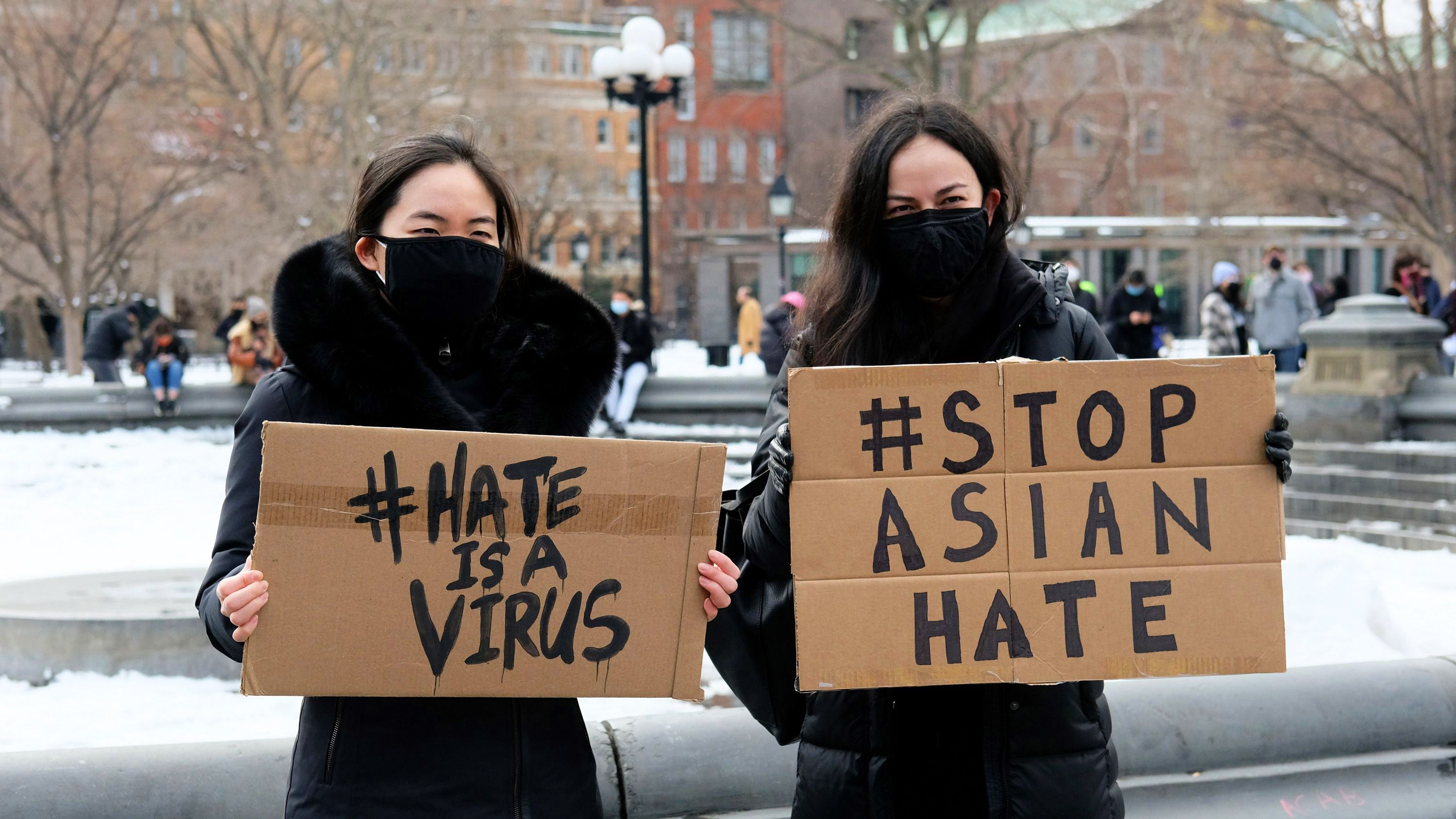
Jodie is a Marketing Executive based in New York.
-
 The 'You' Season 5 Cast Features People From Joe's Past, a New Love Interest, Madcap Twins, and More
The 'You' Season 5 Cast Features People From Joe's Past, a New Love Interest, Madcap Twins, and MoreHere's what to know about the star-studded final installment of the Netflix hit.
By Quinci LeGardye
-
 These J.Crew Sale Finds Basically Packed My Suitcase for Me
These J.Crew Sale Finds Basically Packed My Suitcase for MeI'm ready for my next vacation.
By Brooke Knappenberger
-
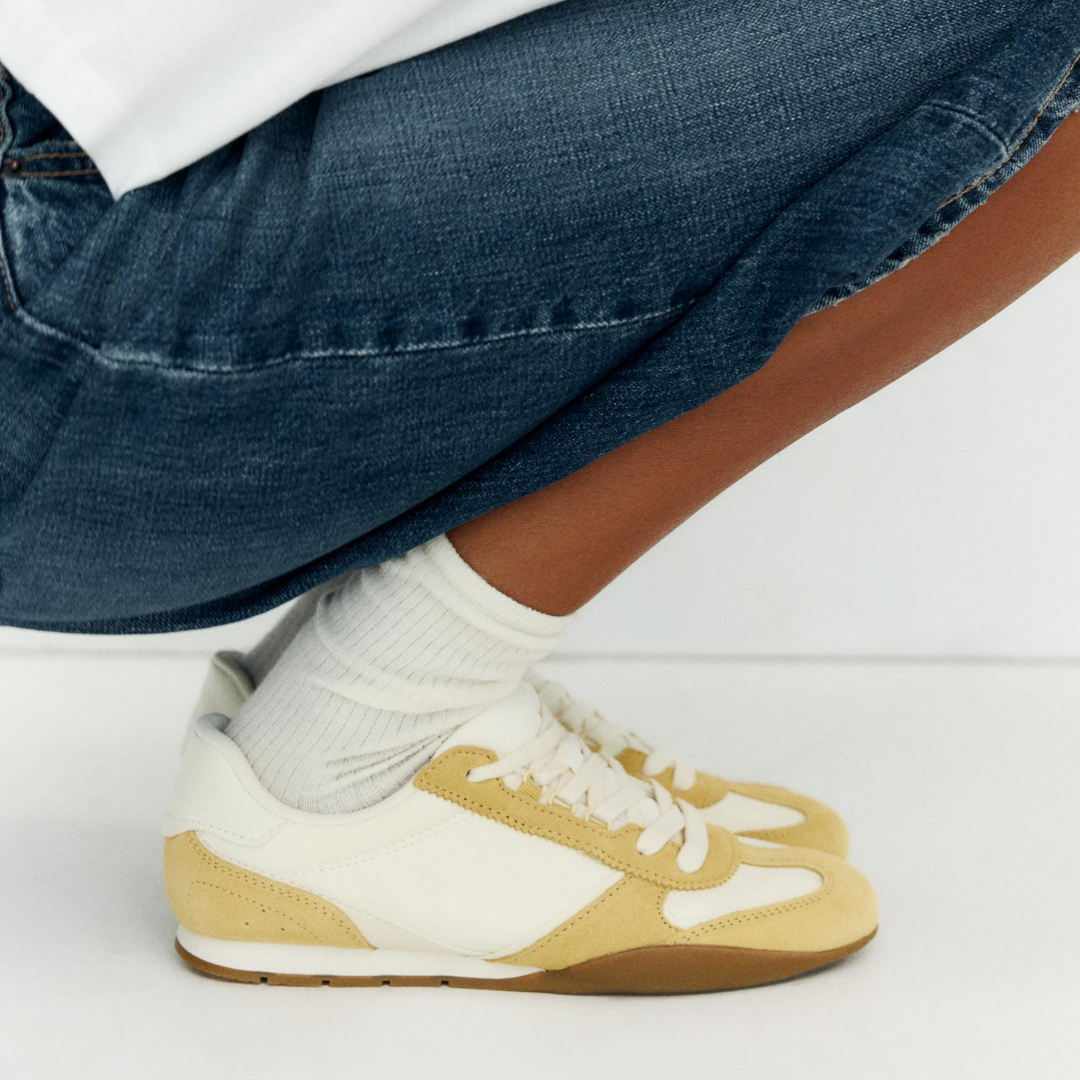 Summer's Sportiest Shoe Trend Is Worth Shopping More Than Once
Summer's Sportiest Shoe Trend Is Worth Shopping More Than Once17 pairs from Nordstrom, Mango, and Zara I'm shopping now.
By Julia Marzovilla
-
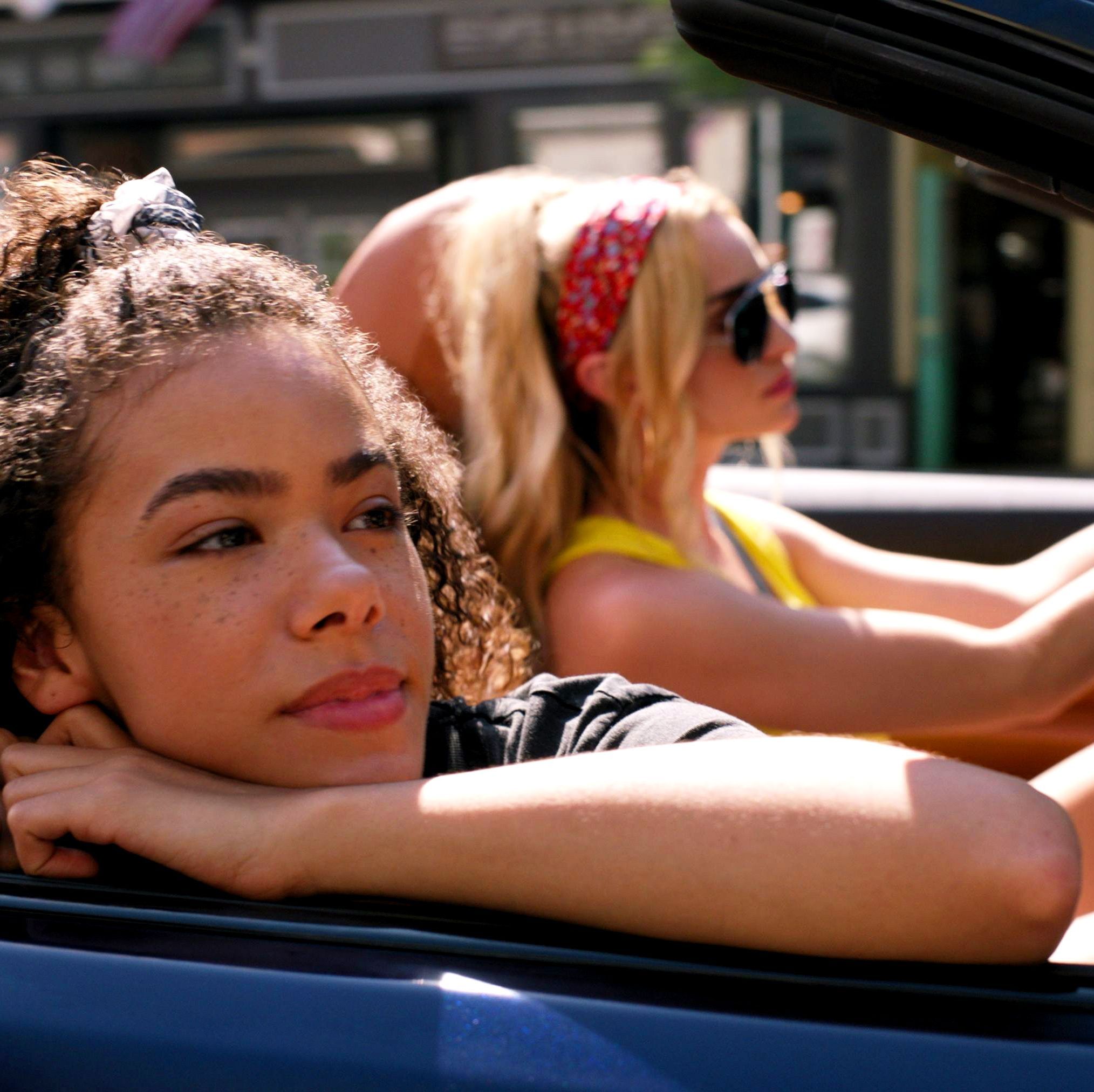 'Ginny & Georgia' Season 2: Everything We Know
'Ginny & Georgia' Season 2: Everything We KnowNetflix owes us answers after that ending.
By Zoe Guy
-
 'Firefly Lane' Season 2: Everything We Know
'Firefly Lane' Season 2: Everything We KnowIn the immortal words of Tully Hart, "Firefly Lane girls forever!"
By Andrea Park
-
 'Bridgerton' Season 2: Everything We Know
'Bridgerton' Season 2: Everything We KnowThe viscount and his new love interest hit Netflix at the end of March.
By Andrea Park
-
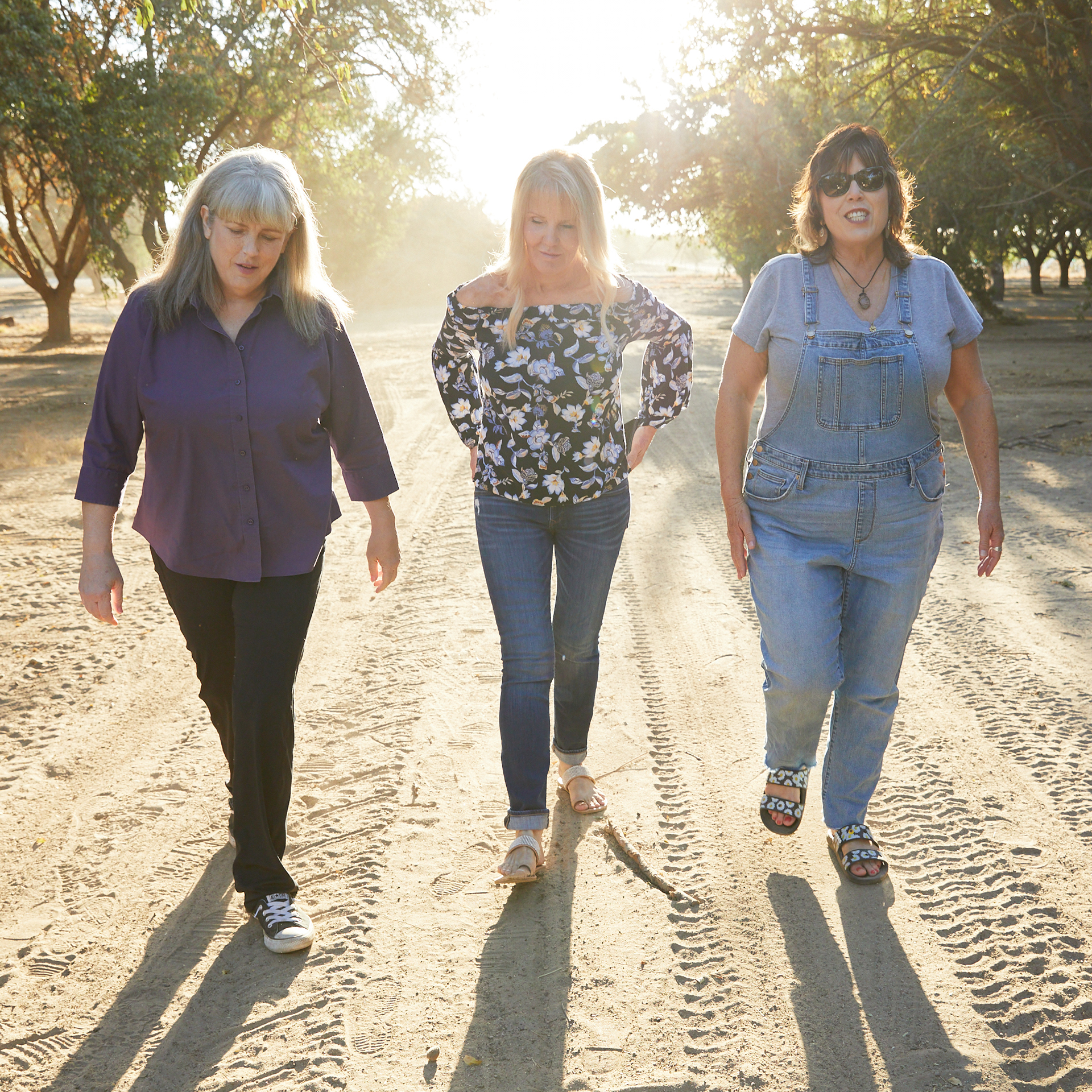 Of Murder and Motherhood
Of Murder and MotherhoodTheir children are gone but these women are united in their fight for justice and answers.
By Katya Cengel
-
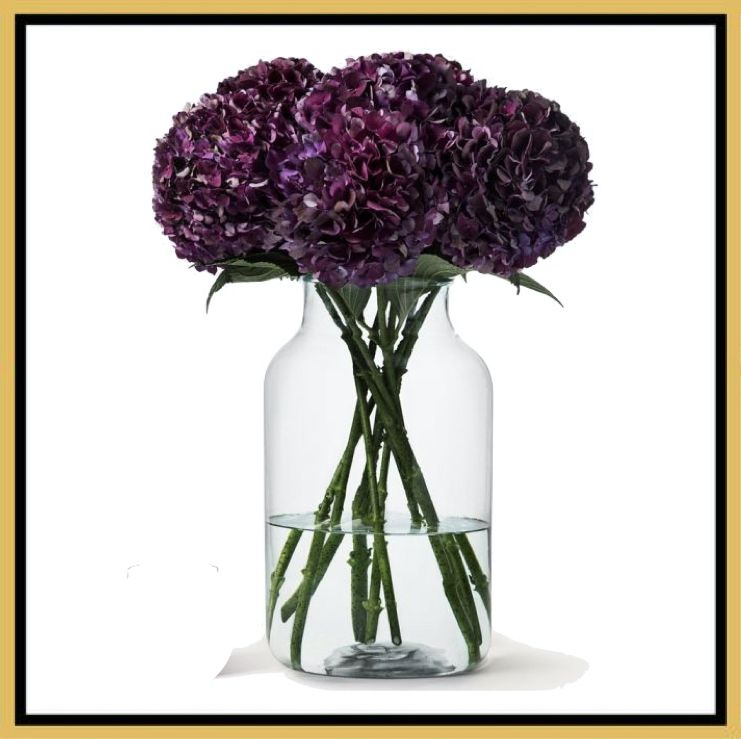 60 Gifts for Mom She'll Truly Love
60 Gifts for Mom She'll Truly LoveFrom creature comforts to luxe indulgences.
By Sara Holzman
-
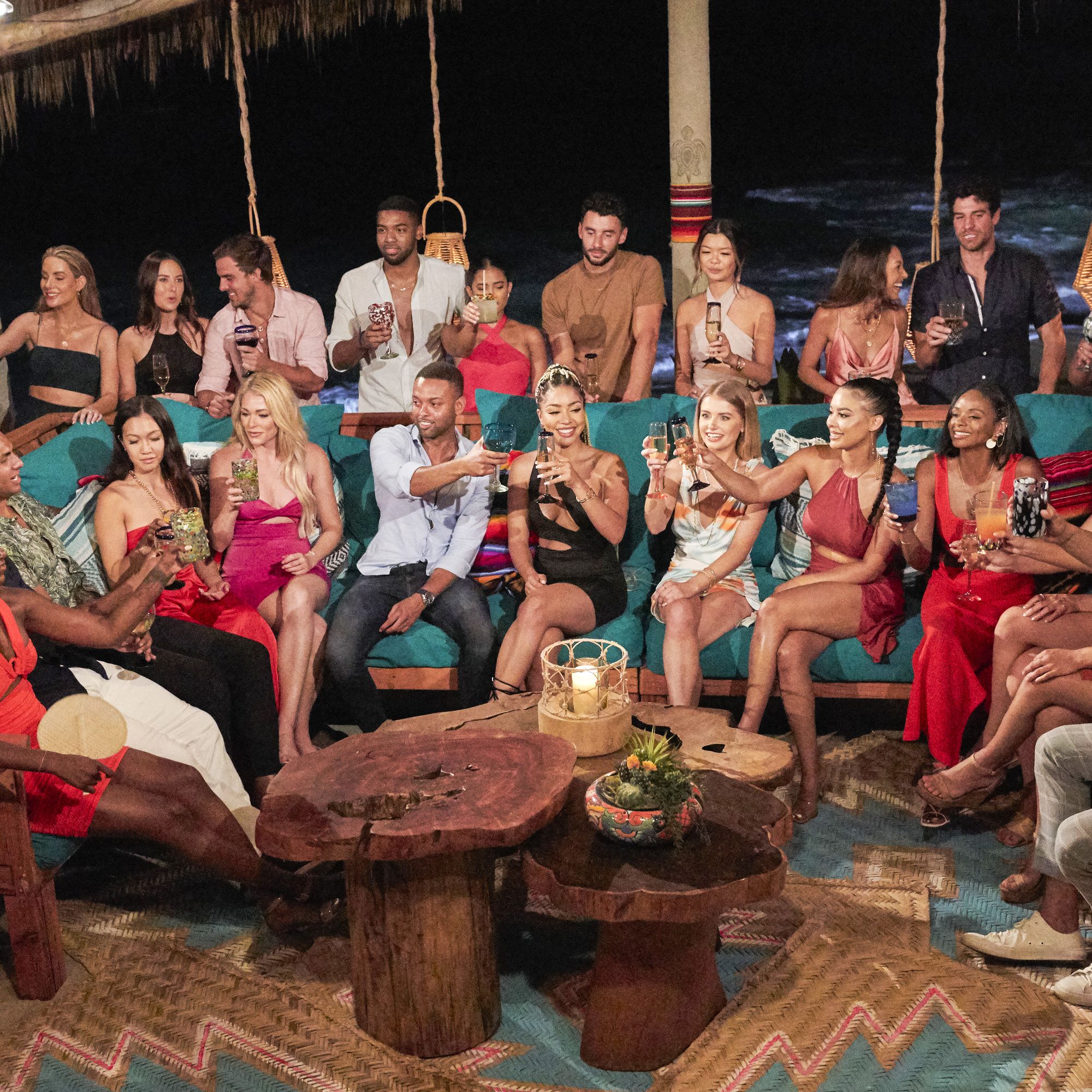 'Bachelor In Paradise' 2021: Everything We Know
'Bachelor In Paradise' 2021: Everything We KnowFeatures It's back, baby!
By Andrea Park
-
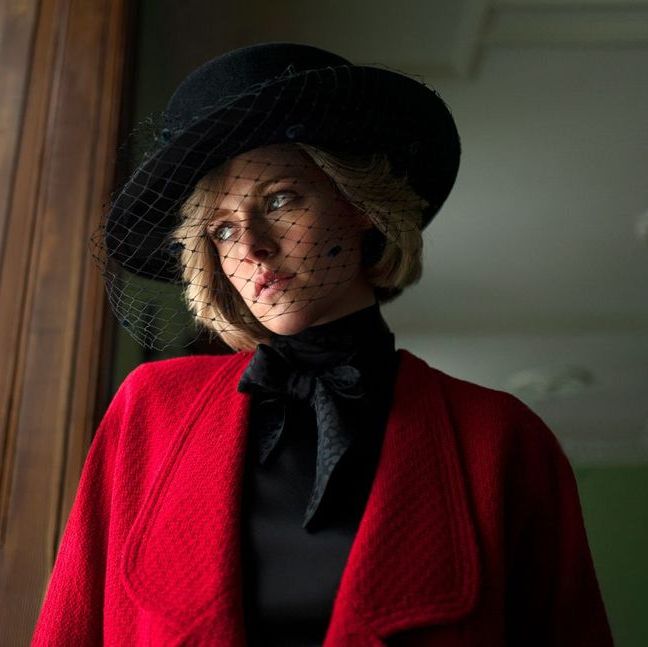 'Spencer,' the Princess Diana Movie: Everything We Know
'Spencer,' the Princess Diana Movie: Everything We Know"Every fairy tale ends."
By Andrea Park
-
 Who is Abigail Heringer From 'The Bachelor' and 'Bachelor in Paradise'?
Who is Abigail Heringer From 'The Bachelor' and 'Bachelor in Paradise'?Features The 25-year-old, who first appeared on Matt James' season, is a financial analyst with an inspiring backstory.
By Andrea Park